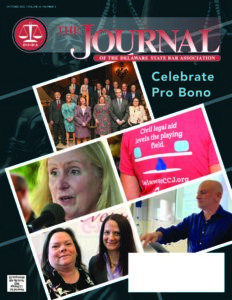Meet CLASI Executive Director, Dan Atkins!
What motivated you to become a legal aid attorney?
In college I first learned about how the law could be used to improve the lives of marginalized populations. It really sparked a passion in me to pursue social justice and making our society more just. I doubled majored in psychology and political science and was torn between graduate school and law school. I felt like the choice confronting me was helping people one person at a time vs. helping large groups of people. It turns out I got both by becoming a legal aid lawyer and marrying a psychologist!
Years as a legal aid attorney?
28 years. I started at CLASI directly out of law school when I was 24 years old. I was so much older then, I’m younger than that now. (Dylan).
Law school attended?
George Washington University. CLASI had hired a GW grad in the class ahead of me, and she was really happy here. I was exclusively pursuing jobs in legal aid around the country and it is sort of like the NBA draft without millions of dollars. Jobs are hard to come by and you go where you are drafted! I had offers from programs in Danville, Virginia (on the North Carolina border, a rusted factory town), Baltimore (in their prison project), and CLASI (doing poverty and disability work). Having grown up in the Philadelphia area, it was not a very difficult decision for me.
Area of specialty?
For the first seven years at CLASI, I was split between the poverty program (representing parents in the child welfare system and victims of domestic violence) and the Disabilities Law Program. For the next 18 years I was the Legal Advocacy Director of the Disabilities Law Program litigating and coordinating our impact work, training and supervising attorneys. I handled a variety of cases during those years, from the Americans with Disabilities Act, to Supplemental Security Income, to Fair Housing Act, to Mental Health, to Medicaid. The irony to my career is that I went into legal aid in part because I could select cases based on their societal value, and not their monetary value. But now, as Executive Director, all I think about is money!
Fun fact about yourself?
When I started at CLASI I was six feet tall and had a full head of hair! (At least one of those things is true).
Example of a case where you felt you made a big difference in someone’s life?
I heard a clinical law professor once say that the big cases are the ones that lawyers care about, and the little cases are the ones that clients care about. Over my almost three decades at CLASI we have achieved some big results (expanding Medicaid residency rules, limiting the use of solitary confinement in prisons) but the ones I remember most are the ones where we have kept families from becoming homeless, gotten their children out of foster care, protected them from domestic violence, and preserved income that kept food on the table. Troubling the comfortable and comforting the troubled—we have to do both.
If you had a magic wand and could wish for one thing related to legal aid, what would it be?
That we could guarantee representation in civil cases, just like we do in criminal cases, to everyone who needs it. In the 2016 Rule of Law Index, the United States ranked 94th out of 113 countries with regard to access to civil justice. Our peers were Afghanistan, Tanzania, Peru, Nepal and Liberia. And in the last two years our ranking has slipped further. I wish we could convey more clearly just how important providing lawyers is to vulnerable populations- and how marginalized communities whom we represent (people who are poor, elderly, disabled, immigrant victims of crime, victims of domestic violence, and veterans) would benefit. We alleviate a lot of pain, change the course of people’s lives, and improve communities’ health at the same time. Having a lawyer matters. A lot.

